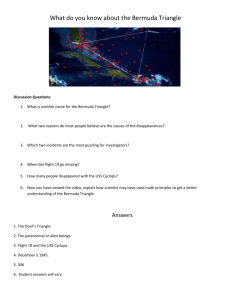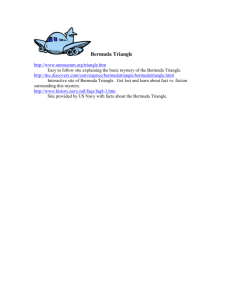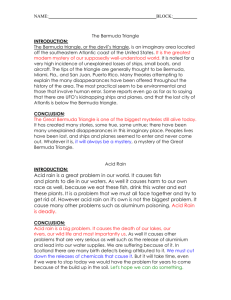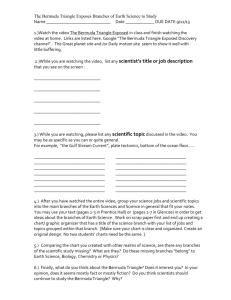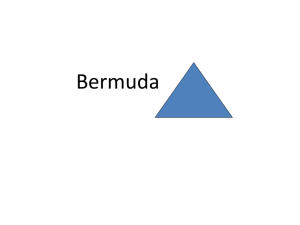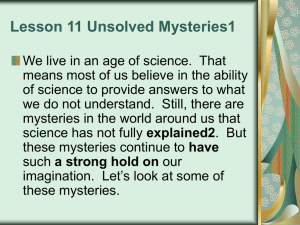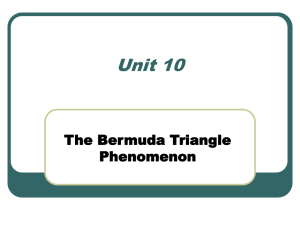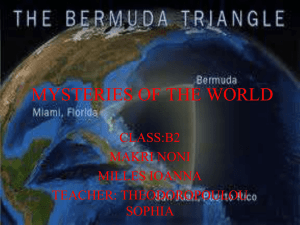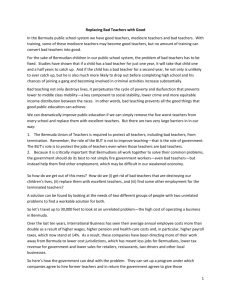Unit 3
advertisement
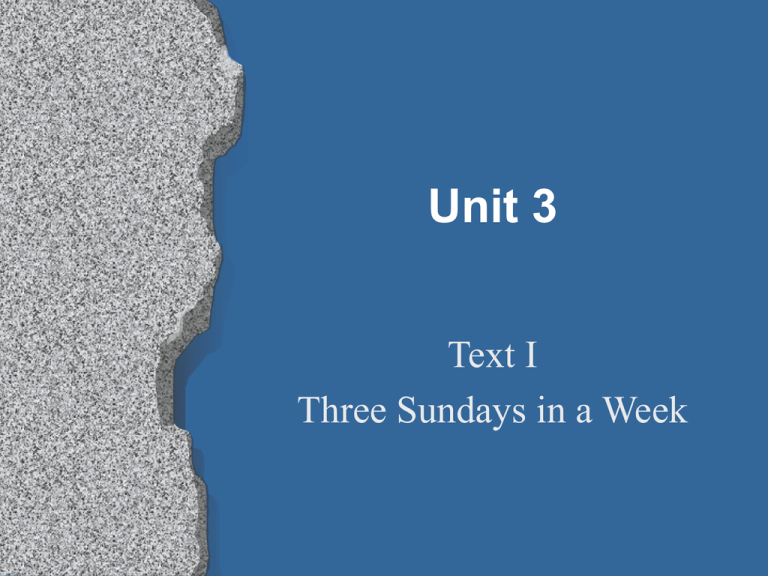
Unit 3 Text I Three Sundays in a Week Objectives: • 1. Understanding of time Zones and International Date Line • 2. Narration in Chronological Order • 3. Vocabulary and structures Teaching Tasks and Process Pre-reading Questions Decide whether the following statements are T or F: • It is quite possible to have three Sundays occurring in one week. • The earth rotates about its axis continually, and the period of a complete rotation is one day. • There are 24 time zones on the surface, when it is noon in Beijing, the times in Sydney, New York and Manchester are all different. • If you travel west, you lose one hour for approximately every thousand miles you go. • If you travel east, you gain one hour for approximately every thousand miles you go. • If you travel around the world once, you either lose or gain 24 hours. Background Information • The author----Edgar Allen Poe (1809-1849) • He virtually created the detective story and perfected the psychological thriller. • He also produced some of the most influential literary criticism of his time -important theoretical statements on poetry and the short story –and has had a worldwide influence on literature. Main ideas • Two sailors and Kate gave a plausible explanation of how three Sundays could occur in a week. Time zones • A time zone is a region of the earth that has uniform standard time, usually referred to as the local time. International Date Line • The International Date Line (IDL) is an imaginary line on the surface of the Earth opposite the Prime Meridian where the date changes as one travels east or west across it. Language points …, Kate and I tried to gain our point indirectly. • gain one's point: succeed in making others agree; persuade people to accept one’s argument • We made great efforts and finally gained our points. • gain one’s experience/ somebody’s confidence …,we began to steer the conversation. • steer: to control, to make…follow the course as somebody had planned • to steer a ship/ car/ conversation/ talk/ boat • He steered the car skillfully through the narrow streets. “Well,” broke in my uncle. • break in: to interrupt, cut in • I could tell the story more easily if you didn't break in so often. • The secretary broke in to say that there was a visitor for the boss. Here Smitherton found his voice at last. • found his voice: began to speak • find one’s tongue/ lose one’s voice/ lose one’s tongue He’d been looking at the others as though they were mad. • as though/if • even though/even if • were /did • could/would + do • had + done …,my uncle roared, purple with anger. • be purple with anger: be so angry that one’s face turns deep crimson • green with envy • ash-white with terror • blue with sadness …after a bit of mock thought. • mock: pretended • mock at sb. • They mocked at my timidity. Comments on the text • Para. 1—the theme • Para. 2---Para.7 —the first step in the steering of the conversation. • Para.8---Para.15 —the chief subject of concern, Sunday, was brought up. • Para. 16---end —the old man was tricked. Text II The Bermuda Triangle The Bermuda Triangle Background information • The Bermuda Triangle, also known as the Devil's Triangle, is a region of the northwestern Atlantic Ocean in which a number of aircraft and surface vessels are alleged to have disappeared. Some people have claimed that these disappearances fall beyond the boundaries of human error, equipment failure or natural disasters. Popular culture has attributed some of these disappearances to the paranormal, a suspension of the laws of physics, or activity by extraterrestrial beings. Question • What do you think of this mysterious phenomenon? • What do you think are the reasons for the lost planes? Discussion/Exercises • Oral Work: • A discussion on the Bermuda Triangle Paragraph writing • Narration in Chronological order Assignments • Exercises on the Work Book
